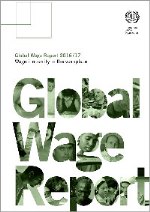Social Watch news
Published on Thu, 2017-02-16 19:35
One of the 11 areas that the World Bank’s Doing Business Report include in ranking a country’s business environment is paying taxes. The background study for the Doing Business Report 2017 (DBR 2017), “Paying Taxes 2016” claims in the foreword that its emphasis is “on efficient tax compliance and straightforward tax regimes.” The aim is to aid developing countries enhance the administrative capacities of their tax authorities, reduce informal economy and corruption, while promoting growth and investment. The very noble intention and much needed support for developing countries from the World Bank, at least on paper, deserves accolades. But, in practice, it is not what it proclaims to be. |
Published on Mon, 2017-02-13 16:00
On November 29, 2016, the Egyptian parliament approved the draft law regulating the activity of civil organizations and institutions submitted by MP Abdul Hadi al-Qasabi on September 6, 2016. This was tantamount to a declaration of war on civil society and an attempt to crack down on all active and supportive human rights organizations. For more than 20 years now, the state has been committing a number of practices aimed to suppress and restrict these organizations and their members, but the recent parliament decision surpassed all previous practices. |
Published on Thu, 2017-02-09 19:36
As the Ontario and Quebec governments design their versions of a basic income pilot program, Canadians find themselves engaged in a policy question we haven’t grappled with in almost half a century: how should the welfare state evolve? At the heart of the basic income debate is a discussion about what’s required for everyone to have a basically decent life. Implicitly, it embraces a conversation about the importance of markets in that pursuit. |
Published on Fri, 2017-02-03 08:49
Thirty civil society organisations (CSOs) from across the world working on global health issues have made a strong call for the deferment of a decision on the Bill and Melinda Gates Foundation's application for official relations with the World Health Organization (WHO). The CSO demand for deferment is based on the conflict of interest emerging from Gates Foundation's official relations with the WHO. |
Published on Thu, 2017-02-02 08:04
The open-ended working group (OEIGW) on transnational corporations (TNCs) and other business enterprises with respect to human rights successfully held its second meeting in October 2016, in Geneva. The OEIGW was established by a Human Rights Council resolution adopted in July 2014. According to this resolution, the next meeting of the OEIGW, expected in October 2017, will see the Chairperson rapporteur “prepare elements for the draft legally binding instrument [on TNCs and other business enterprises with respect to human rights] for substantive negotiations” (hereinafter referred to as “the Instrument” or “binding Instrument”). |
Published on Thu, 2017-01-26 18:52
This year, our organization, Inclusive Development International, launched the Follow the Money initiative – a new tool to fight land grabs and other corporate abuses. It’s a simple idea, but we believe it has the potential to be a game-changer. Every year, more than 15 million people are forcibly displaced from their land, housing and the natural resources they depend upon to make way for large-scale agro-industrial plantations, hydropower dams, mines and power plants. Rarely are they compensated for what they have lost. |
Published on Thu, 2017-01-26 16:27
In various remarks in the last few days, Argentine government officials have insisted upon blaming foreign-born people for drug trafficking in our country. Security Minister Patricia Bullrich used skewed and decontextualized statistics and stigmatizing assertions to try to justify a toughening of the nation’s immigration policy, which the government has been announcing for several weeks. |
Published on Mon, 2016-12-19 14:07
In an unprecedented and historic move, the Sixth Committee of the UN General Assembly recently granted observer status to the International Chamber of Commerce (ICC). The resolution was submitted by France, Albania, Colombia, the Netherlands and Tunisia and was adopted during the seventy-first session of the General Assembly. The resolution sets out the ICC’s position as observer in the General Assembly from 1 January 2017 on. |
Published on Thu, 2016-12-15 15:30
Global real wage growth has decelerated since 2012, falling from 2.5 per cent to 1.7 per cent in 2015, its lowest level in four years, the International Labour Organisation (ILO) has said. In its latest Global Wage Report 2016/17, the ILO said if China, where wage growth was faster than elsewhere, is not included, real wage growth has fallen from 1.6 per cent in 2012 to 0.9 per cent in 2015. "The United Nations 2030 Agenda for Sustainable Development identified decent work for all women and men, and lower inequality, as among the key objectives of a new universal policy agenda. The issues of wage growth and wage inequality are central to this agenda," said ILO Director-General Guy Ryder, in a preface to the report. |
Published on Thu, 2016-12-15 14:46
Last International Human Rights Day, December 10th, marked the 4th anniversary of the launch of the RightingFinance (RF) website. Human rights is one of the areas of public interest where the disconnect with the representation in financial regulation becomes most evident. The choices on global and domestic financial regulation carry critical consequences for the ability of governments to comply with their human rights obligations. For an extreme and recent illustration of this one needs only examine the impacts of the 2008-09 global financial crisis. It prompted the Office of the High Commissioner for Human Rights to state that “As a result of the crisis and the threat posed to national economies by the potential collapse of systemically important financial institutions, . . . the ability of individuals to exercise their human rights, and that of States to fulfil their obligations to protect those rights, has been diminished.” |
SUSCRIBE TO OUR NEWSLETTER









